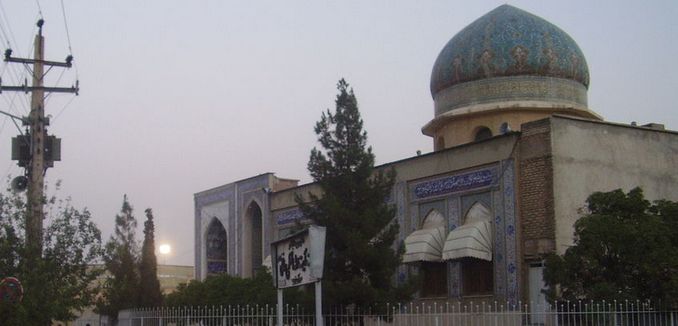Representatives of the Baha’i religion accused the government of Iranian President Hassan Rouhani on Tuesday of “ongoing efforts to destroy the Baha’i community,” the Associated Press reported.
In a 122-page document, the Baha’i International Community outlined the Rouhani administration’s efforts to intensify its “campaign to incite hatred against Baha’is,” including by spreading over 20,000 propaganda pieces in the media.
Since Rouhani took power in 2013, more than 151 Baha’i have been arrested and 388 acts of economic discrimination — including threats, intimidation and the closing of Baha’i-owned businesses — have been documented against members of the faith, according to the report. Thousands of Baha’i have also been denied entry into universities, while 28 have been expelled on the basis of their religion, which has been outlawed by the Islamic Republic.
A report released by United Nations Secretary General Ban Ki-moon last month explained that “in the Islamic Republic of Iran, access to education at technical and vocational universities and non-governmental educational institutions is restricted according to one’s religion.” While Ban’s report highlighted Iran’s persecution of various minority groups, it described the Baha’i community as “the most severely persecuted religious minority” in the country.
Bani Dugal, the representative of the Baha’i community to the UN, said that “taken altogether, what we have seen is an overall shift in tactics by the Iranian government, apparently as part of an attempt to conceal from the international community its ongoing efforts to destroy the Baha’i community as a viable entity.”
“The take-away from the report is that international pressure on Iran, whether by the United Nations, the news media, activists or even the general public, remains a critical means of protection against a wider pogrom that targets the largest non-Muslim religious minority in Iran,” Dugal added.
The Baha’i World News Service reported on Wednesday that Farhang Amiri, a member of the faith, was stabbed to death in the Iranian city of Yazd by two men who said they were motivated by his religion. “Such a heinous act is a consequence of a longstanding, systematic effort by the Iranian authorities to encourage hatred and bigotry against Baha’is,” Dugal said.
In his October 2016 report (.pdf) on human rights in Iran, UN Special Rapporteur Ahmed Shaheed warned that the regime has continued to “restrict the types of businesses and jobs Baha’i citizens can have, support the closing of Baha’i-owned businesses, place pressure on business owners to dismiss Baha’i employees and call for seizure of their businesses and property.”
The Baha’i faith was founded in the mid-19th century by a Persian nobleman who is considered to be a prophet by his followers. Muslims, however, believe that Mohammad was the final prophet. Iranian Supreme Leader Ayatollah Ali Khamenei issued a fatwa in 2013 instructing Iranians to shun members of the Baha’i faith.
Mark Green, a former congressman and U.S. ambassador to Tanzania, observed in January that while Rouhani promised greater civil liberties during his election campaign, the human rights situation in Iran has not improved under his tenure. “[Promises] to increase equality between men and women, assure equal rights for Iranian ethnicities, allow minorities to practice religious rituals, revive the Association of Iranian Journalists and enable uncensored access to information have not materialized,” he wrote.
[Photo: NicholasJB / WikiCommons ]




